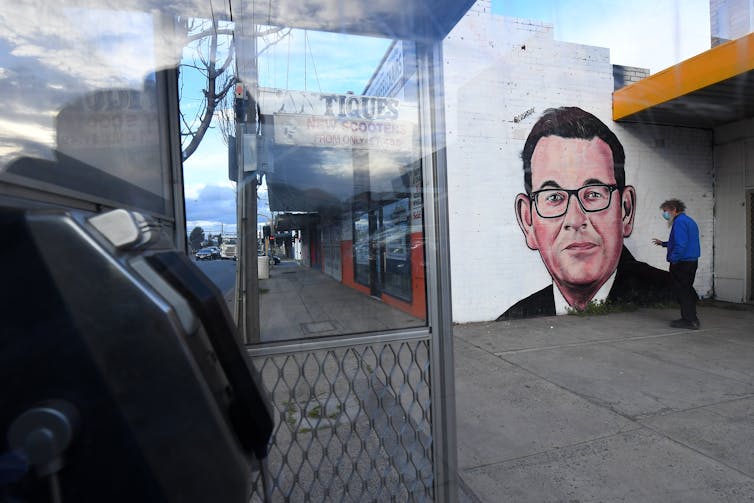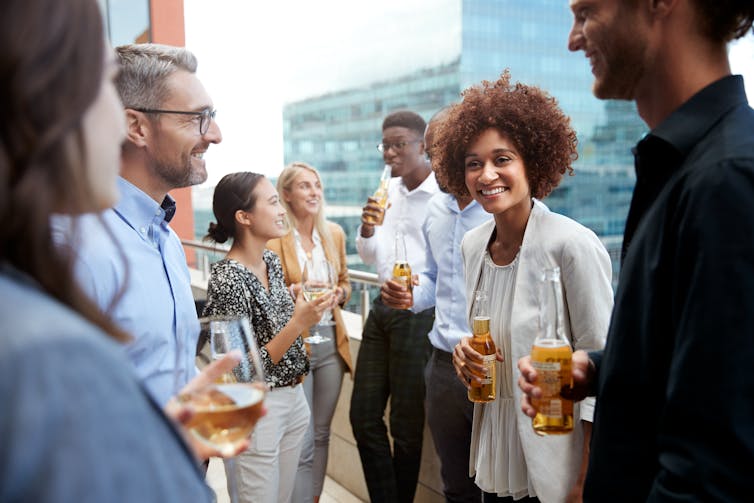5 things the pandemic has revealed about the Australian psyche
- Written by Jayashri Kulkarni, Professor of Psychiatry, Monash University
The COVID-19 pandemic has spawned some of the most dramatic changes to Australian life in recent memory. We’ve had to adapt to a vastly different way of life to curb the spread of the virus, featuring unfamiliar challenges such as social distancing, mask wearing, and limits on gatherings and travel.
As Victorians in particular begin to emerge from “lockdown 2.0”, it’s timely to reflect on what can be learned from living through a pandemic, particularly the psychological experiences. Indeed, the pandemic has exposed some truths about human behaviour and the mind.
1. Australians are largely law-abiding people
As a nation, we tend to think of ourselves as happy-go-lucky “larrikins”. This term is meant to describe our supposedly relaxed nature, irreverence, egalitarianism and self-deprecating sense of humour.
Read more: An obedient nation of larrikins: why Victorians are not revolting
But during this pandemic, most of us have diligently followed the public health rules such as social distancing, wearing masks and observing curfews. Although we might fancy ourselves as having a laconic disregard for rules, the truth is we are a law-abiding nation when it really counts.
 As Australians, we like to think we’re all a bunch of larrikins with little regard for authority. But most of us have duly followed the public health rules.
James Ross/AAP
As Australians, we like to think we’re all a bunch of larrikins with little regard for authority. But most of us have duly followed the public health rules.
James Ross/AAP
2. Women have been affected more by COVID-19
Many surveys show there are increased levels of anxiety, depression and deliberate self-harm in women compared to men during the pandemic.
There’s also been “an increase in women presenting to mental health services who are at risk of or experiencing family violence” in Australia, according to the Women’s Mental Health Alliance.
The pandemic has underscored the inequalities between men and women in Australia. These pressures include an increased burden on women coping with the role of home-based education of children; women as the majority of frontline health-care workers facing daily job pressures and risks of COVID-19 infection; and women making up a large part of the casual workforce facing increasing economic stress and the uncertainty of future employment.
Read more: More help required: the crisis in family violence during the coronavirus pandemic
3. We’re social animals
As highlighted by COVID-19 restrictions, prolonged social isolation can erode our sense of reality, self-worth and creativity. Reduced contact with other people can cause rapid acceleration of mental ill-health. The long-term health impacts of isolation are comparable to those of cigarette smoking and obesity.
Read more: Lonely in lockdown? You're not alone. 1 in 2 Australians feel more lonely since coronavirus
Humans have evolved to live in groups with close and regular physical, emotional and verbal contact.
We rely on social connections to develop new ideas and solve problems, to achieve a wide variety of goals by working together and for external validation of us as worthy individuals.
 Enforced isolation during the pandemic has reminded us of a key human need we’ve taken for granted — we need social connections to thrive.
Shutterstock
Enforced isolation during the pandemic has reminded us of a key human need we’ve taken for granted — we need social connections to thrive.
Shutterstock
4. Adaptation and resilience are among the greatest human resources
As a nation we have been able to quickly and flexibly develop online teaching curricula, carry out many businesses from home and change our way of socialising. We’ve also rapidly changed many of our research programs to respond to the pandemic and potentially provide testing innovations, a vaccine, and new ways to provide mental health support.
We’ve been able to do this because humans possess cognitive skills that enable us to change our culture and adapt to it. Indeed, many researchers have speculated humans might be the most flexible and adaptable species.
Part of this is our ability to be resilient. Resilience reflects the ability to maintain a stable equilibrium in a situation of threat or loss. Basically, to get back up after being knocked down.
5. We need to cultivate our mental health, not just avoid mental illness
Generally in Australia we’re used to an action-packed approach needed to fight crises such as bushfires and wars. But during this crisis we’ve began to recognise the important of other coping skills. These include self-reflection, using virtual ways to connect with others, and openly discussing our mental health.
Self-reflection helps to build emotional self-awareness, which in turn leads to a better understanding of one’s emotions, strengths, weaknesses and driving factors.
We’re developing a greater awareness of the importance of good mental health. Just as we would maintain our physical health, we need to actively support our mental health, even if we don’t have a mental illness.
Read more: What are the characteristics of strong mental health?
Authors: Jayashri Kulkarni, Professor of Psychiatry, Monash University
Read more https://theconversation.com/5-things-the-pandemic-has-revealed-about-the-australian-psyche-146215





